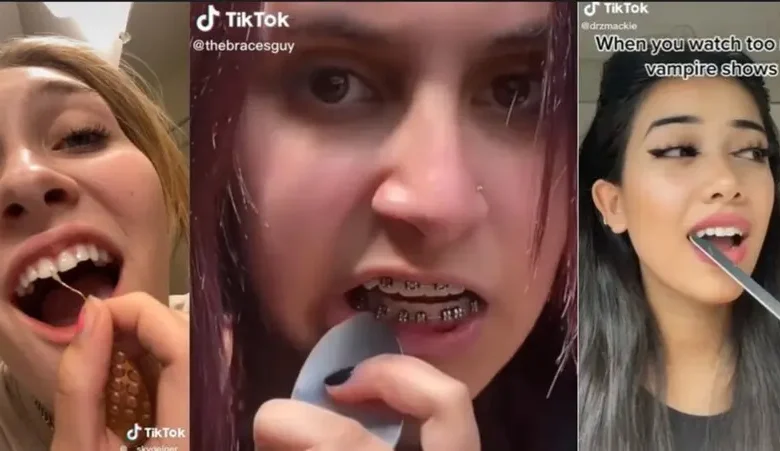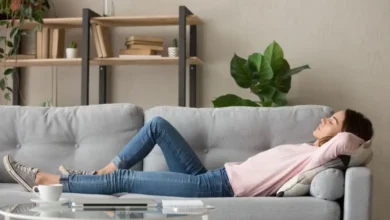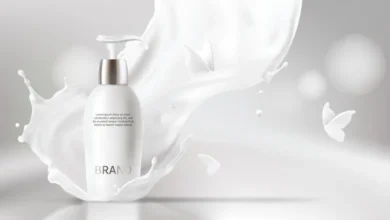UAE dentists advise against buying dental braces, aligners online amid TikTok hype

A recent TikTok trend has sparked a surge in online purchases of dental braces and teeth aligners, but dentists in the United Arab Emirates warn that this DIY orthodontics can “do more harm than good.”
The trend is having a ripple effect across the orthodontic industry as more people turn to cheaper online options instead of professional in-person care. However, UAE dentists are cautioning that using these products without consulting professionals could result in unintended consequences.
“These braces are going to do more harm than good. The comprehensive diagnosis performed prior to treatment is the most important part of any orthodontic treatment. The new trend completely disregards this step,” General Practitioner Dental at Abu Dhabi’s Burjeel Hospital Dr. Tamer Mohsin Abusalah told Al Arabiya English.
“A thorough evaluation of the patient’s tooth, radiographic study of his bone, and related structure are all part of the diagnosis process in order to create a treatment plan that is unique to each individual case. This is only possible with a trained eye – none of which is the case here.”
Abusalah believes that social media has “largely misled the public” with “false campaigns.” In this case, consequences could range from minor tooth mobility to severe temporomandibular disorders – a condition that directly affects the jaw muscles, joints and nerves associated with chronic facial pain.
“No, not yet. The effects of such treatments will only become apparent over time. We have yet to see the effects of this trend because it is still relatively new. There have been reports in the United Kingdom, and the NHS has already issued a warning,” Abusalah explained.
The UK recently warned the public not to buy DIY dentistry products online and the country’s health watchdog announced last summer that any company providing remote orthodontic services would need to register with it first.
However, according to Britain’s General Dental Council, responsible for regulating dentists, there is no effective substitute for an in-person clinic exam, which should take place before any treatment is prescribed.
“In terms of treatment outcomes and patient comfort, dentistry has come a long way. The current evidence-based practice is highly systematic, effective, and, most importantly, safe. On the contrary, such trends are completely barbaric and unresearched, and they should be discouraged for the sake of patient safety and well-being,” Abusalah said.
Negative ‘long-term consequences’
“Many people consider orthodontic treatment to be expensive, which is why the ‘do it yourself orthodontics’ trend has recently emerged and has become so popular, particularly in this post-COVID era,” said Dr. Arshad Ahmed Abbasi, Specialist Orthodontist and Dento-Facial Orthopedic Surgeon at Abu Dhabi’s Tajmeel Specialized Medical Center.
However, cutting costs by opting for these online products can come at a much higher cost in the long run, warned Abbasi.
While these treatments may appear to offer short-term benefits and be endorsed by numerous online “experts,” the true cost of circumventing professional dental care can be substantial. By investing in proper dental procedures, individuals can avoid the larger financial and health consequences of settling for cheaper, DIY alternatives.
“In order to save a few dollars, you may end up with irreversible long-term negative consequences,” the doctor Al Arabiya English.
“There is no direct contact between the provider and the patient during an online treatment, no clinical examination of the patient’s mouth, and no assessment of their dental health to decide what to do and what not to do.”
He continued, “This is critical, and more clarity is needed on how anyone can assess the health of a patient’s mouth by simply viewing photographs taken on a phone and planning orthodontic treatment based on that.”
A provider’s authenticity and credibility are highly important, said Abbasi, because people may fail to differentiate between Orthodontists, dentists or simply an IT genius.
“Even if he or she is registered with the local dental council, it is unclear who the patient can take legal action against. As a result, this type of treatment may be provided with limited public protection, which is an important ethical issue that may differ from country to country.”
He believes that these concerns must be addressed in order to educate and make patients more aware of the long-term effects such products could have on their health.
“Most patients, I believe, choose these options due to a lack of awareness, low prices, and, of course, the desire to save time. The only way to address this is to raise awareness,” Abbasi added.
“Social media and digital platforms play a vital role in our decision-making, however, such practices that involve command of the clinical judgments which have a direct impact on patient’s health is something alarming, and seeking opinions from a clinical expert will save us by all means.”
Social media trends a major cause for concern
Orthodontic treatment can often come with a hefty price tag, causing people to seek out cheaper options. In light of these costs, TikTok users have taken to the platform to share their at-home dental hacks, including removing braces with a spoon.
The popular orthodontist known as ‘The Braces Guy’ on TikTok, with nearly five million followers, warned that this DIY approach is harmful, as removing braces without proper tools could result in shifting teeth and glued residue that can only be removed with a dental drill.
@thebracesguyTaking braces off with a SPOON!?!?! 😳
It’s not just braces that are receiving the DIY treatment on the social media platform, with one user demonstrating how to fill gaps between teeth using a dental filling kit and an earring. Such kits can be purchased on Amazon for less than $24.
“The other most common dental-related trend seen on some online platforms is teeth whitening, which involves the use of various materials to whiten the teeth,” Abbasi said.
“If non-evidence-based materials are used, they can irreversibly damage the tooth surface, resulting in problems such as tooth sensitivity, bleeding gums, enamel weakening, and so on.”
Abusalah said that the social media dental trends he was most worried about were home bleaches bought online and self-treatment on orthodontic appliances.










